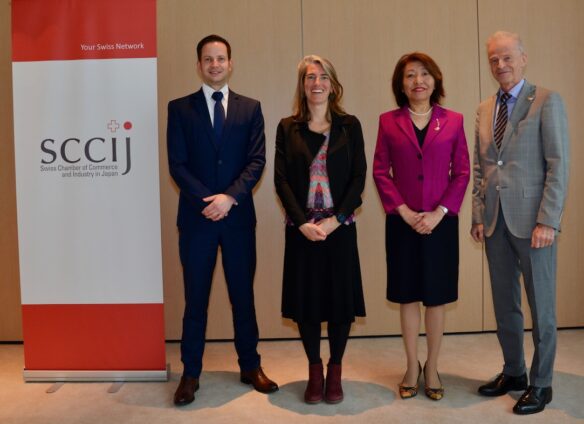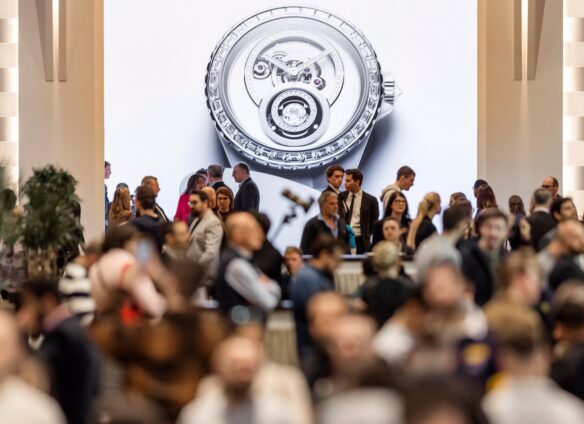Tokyo (SCCIJ) – Mr. Kojiro Shiraishi, former Ambassador of Japan to Switzerland, talked about learnings from his three-year tenure in Bern at the May Luncheon. He argued that the Swiss “trinity” of hospitality, stability, and neutrality has become a novel normalcy in international politics. About 40 members and guests of the SCCIJ attended the event. We summarize his speech in interview form.
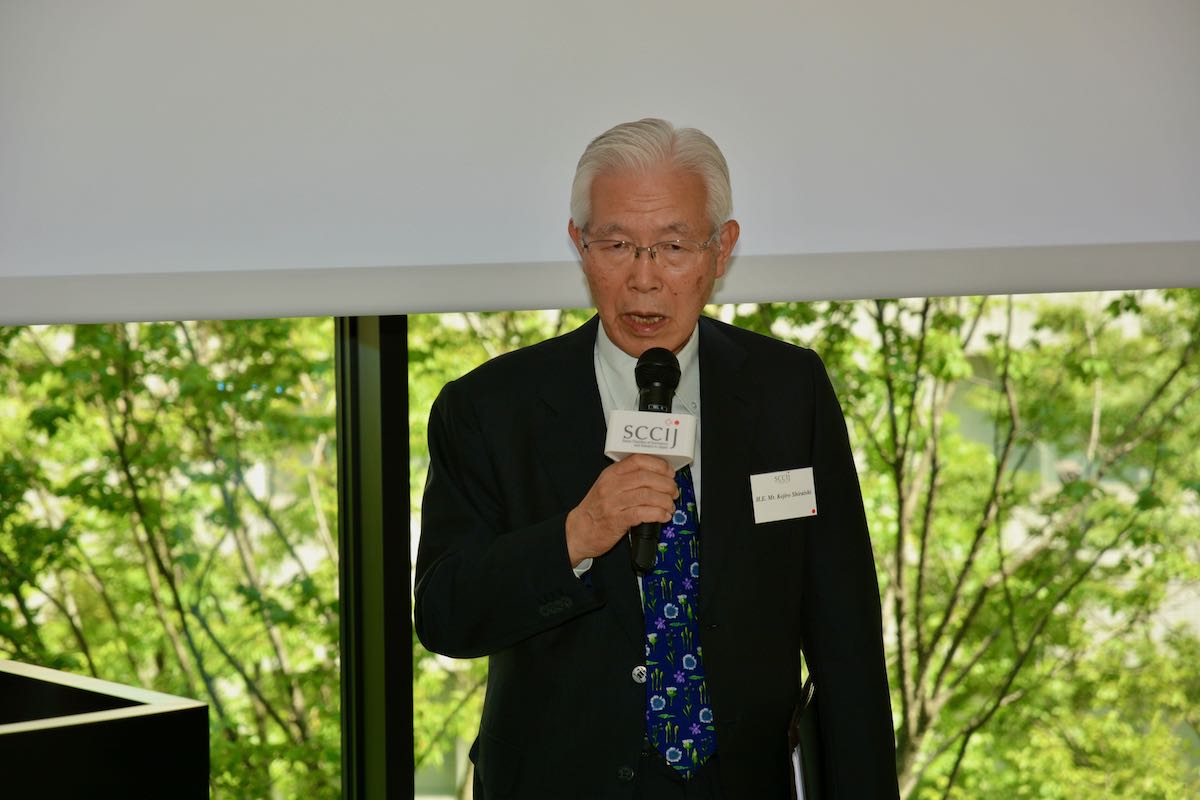
May Luncheon Speaker Mr. Kojiro Shiraishi, former Ambassador of Japan to Switzerland.
You spent three years in Bern as the Ambassador of Japan to Switzerland. Was this time enough to comprehend the Swiss and their nation?
Mr. Kojiro Shiraishi: I have a deep admiration for Switzerland and its people, even though the country as well as its citizens remain something of an enigma to me. It is difficult for me to gain a comprehensive understanding of Switzerland because of its diversity in government, culture, religion, language, and ethnicity. Despite these differences, however, Switzerland has managed to maintain its unity for a long time guided by the basic principle of “One for all and all for one.” I believe that Switzerland and the Swiss, also known as Helvetia and the Helvetians, embody paradoxes and contradictions. However, they are wise enough to know how to compromise with each other at every critical junction.
How would you summarize your insights from these three years in Bern?
K. Shiraishi: My phrase to best encapsulate the essence of Switzerland and its people is the “three-in-one triangle Swiss style,” consisting of hospitality, stability, and neutrality. First, hospitality. My wife and I enjoyed our life in Bern thanks to the hospitality of the Swiss people. I am certain that hospitality is an outstanding feature that defines the Swiss. The second keyword that characterizes the country is stability in its politics, economy, and society. Third, I would like to emphasize its neutrality policy. I believe that hospitality, stability, and neutrality form a triangle of virtues of Switzerland and its people, from which Japan and the Japanese can learn a lot.
What comes to your mind today when you compare the Swiss and Japanese people?
K. Shiraishi: In discussing the common characteristics of the Swiss and Japanese people, traits such as hospitality, punctuality, diligence, and frugality often come up. In my observation, the Swiss are more kind, more caring, and more honest with others than the Japanese. And the Swiss are richer and more conscious about their quality of life than the Japanese. My wife and I were moved by the Swiss people’s behavior to help others in quite spontaneous ways. While I suppose that the Japanese are generally kind to others, I wonder if they behave as spontaneously as the Swiss do.
Did you experience any negative sides of Switzerland during your tenure?
K. Shiraishi: I was astonished by graffiti and dirty markings on the walls of public and private properties. We would rarely see them in Tokyo. They might be youngsters’ misdemeanors that you could overlook with tolerance. I would be more tolerant of graffiti if they were the works by Banksy. What irritated me was that some wrongdoers deliberately repeated the graffiti shortly after the walls were repaired and cleaned. The Japanese embassy and my residence, too, fell victim to repeated graffiti. Another thing that frustrated us was that it took more time and cost more money than expected to fix faults related to electricity, tap water, heating system, and so on. The quality of work was not satisfactory in some cases. But besides these two points, I had nothing to complain about.
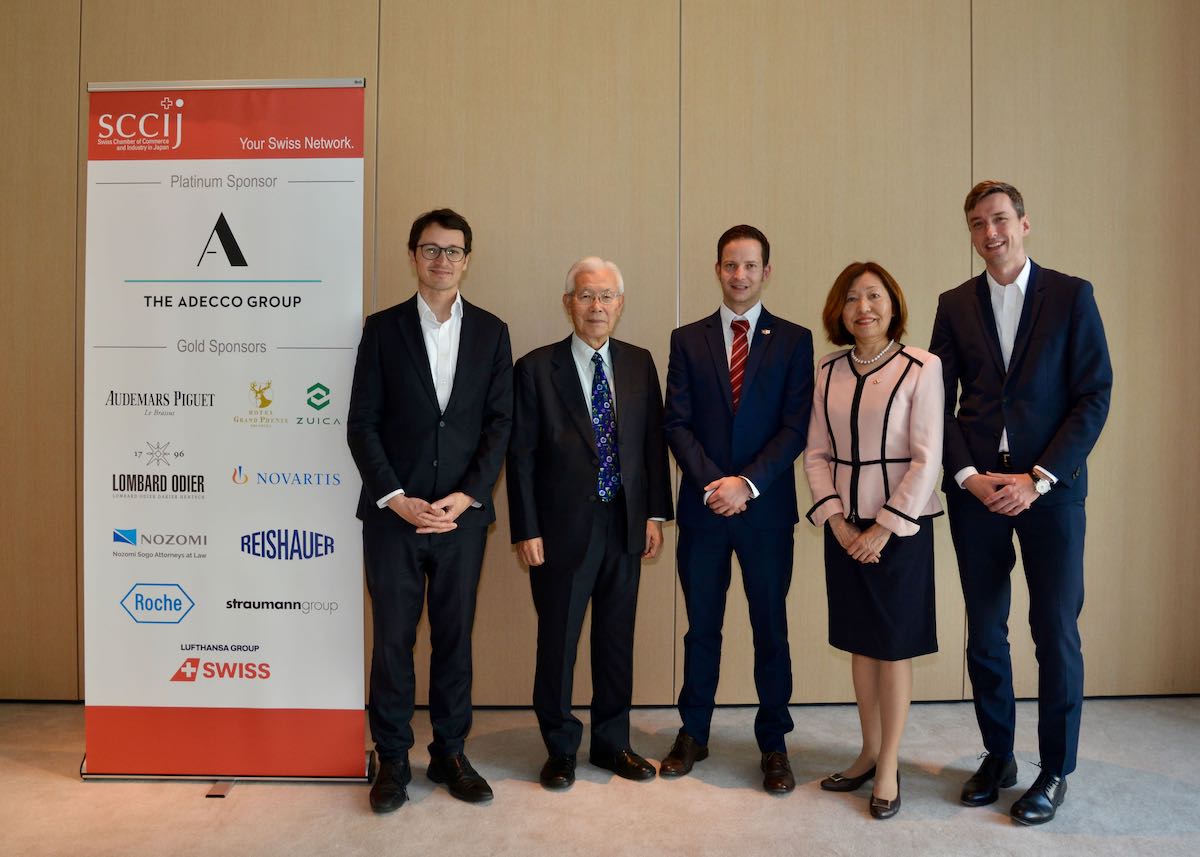
Members and advisors of the SCCIJ Executive Committee with May Luncheon Speaker Mr. Kojiro Shiraishi.
How do you view the recent developments in Switzerland’s policy of neutrality?
K. Shiraishi: When the war in Ukraine broke out in February of last year, the Swiss government swiftly decided to align itself with the Western allies and joined economic sanctions against Russia. The Federal Council of Switzerland made its political position clear by declaring three basic approaches concerning Russia and Ukraine: a) Neutrality is still in place, b) Neutrality does not mean indifference to serious violations of international law, and c) Neutrality is compatible with the adoption of EU sanctions. I am interested in the outcome of the upcoming elections of the Swiss Parliament scheduled in October, in which voters will show their reaction to the government’s neutrality policy.
What role could Switzerland and Japan have in finding a solution to the Russian war against Ukraine?
K. Shiraishi: Switzerland and Japan were elected non-permanent members of the Security Council of the United Nations last year and they sit together on the Council from January of this year. Both countries must work hand in hand to help the United Nations in restoring world peace and stability. It’s disappointing to see the UN Security Council facing malfunctions because of sabotage by Russia and China. A reform of the Security Council will be quite difficult. The crux is to restrict the veto power that is the vested interest of the Permanent Five. They will never relinquish it voluntarily. Japan is committed to accelerating the reform and will seek Switzerland’s support and cooperation.
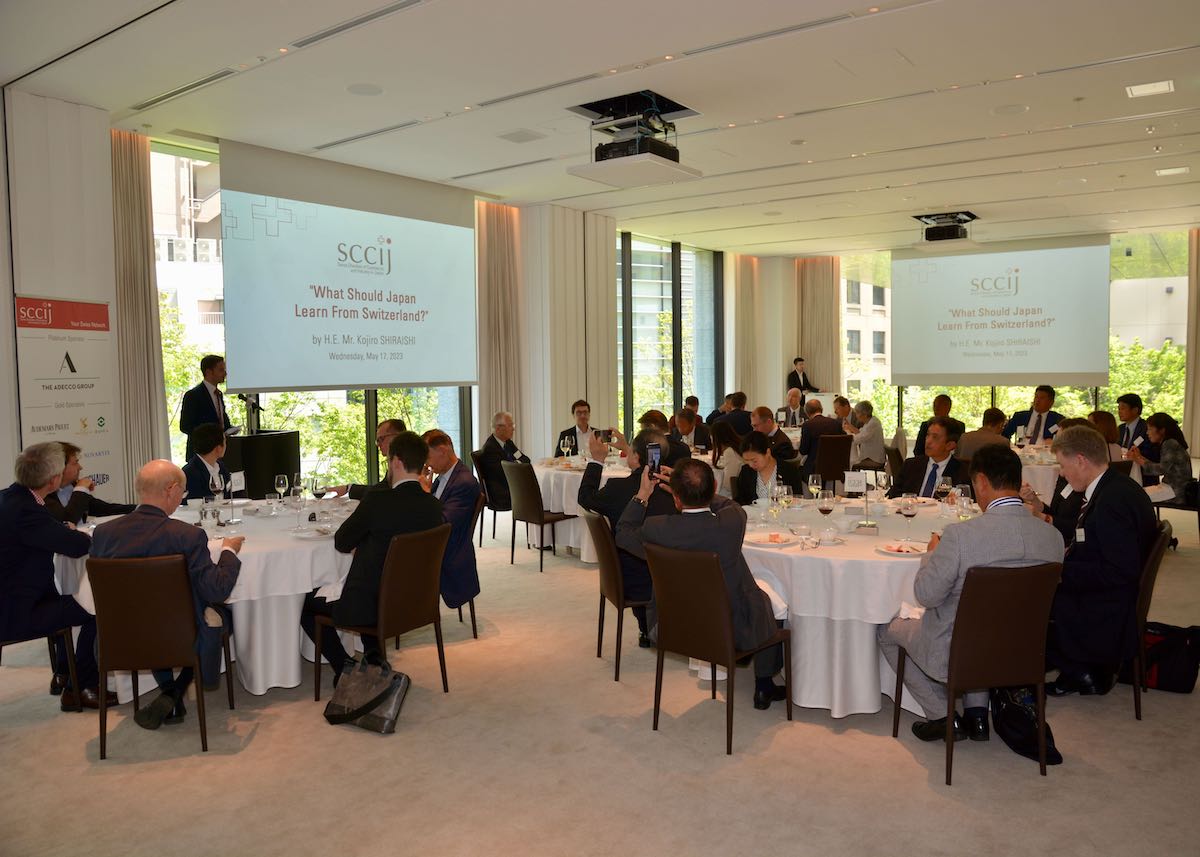
The SCCIJ May Luncheon took place at the Tokyo Edition in Toranomon.
Biography of the speaker
H.E. Mr. Kojiro Shiraishi was born in Toyama Prefecture in 1946. Having graduated from the Faculty of Letters of the University of Kyoto, he joined the Yomiuri Shimbun in 1969, becoming the Group’s Director of Digital Media in 2004, Managing Director and Editor in 2007, President in 2011, and Chairman of the Board in 2016. He also served as the owner of the Yomiuri Giants baseball team (2011) and as the Chairman of the Japan Newspaper Publishers & Editor Association (2013-2019). In 2019, Mr. Shiraishi’s career took a new turn when he was appointed Extraordinary and Plenipotentiary Ambassador of Japan to Switzerland and Liechtenstein by the government of Prime Minister Shinzo Abe. He held this function until November 2022.
Text and photos: Martin Fritz





